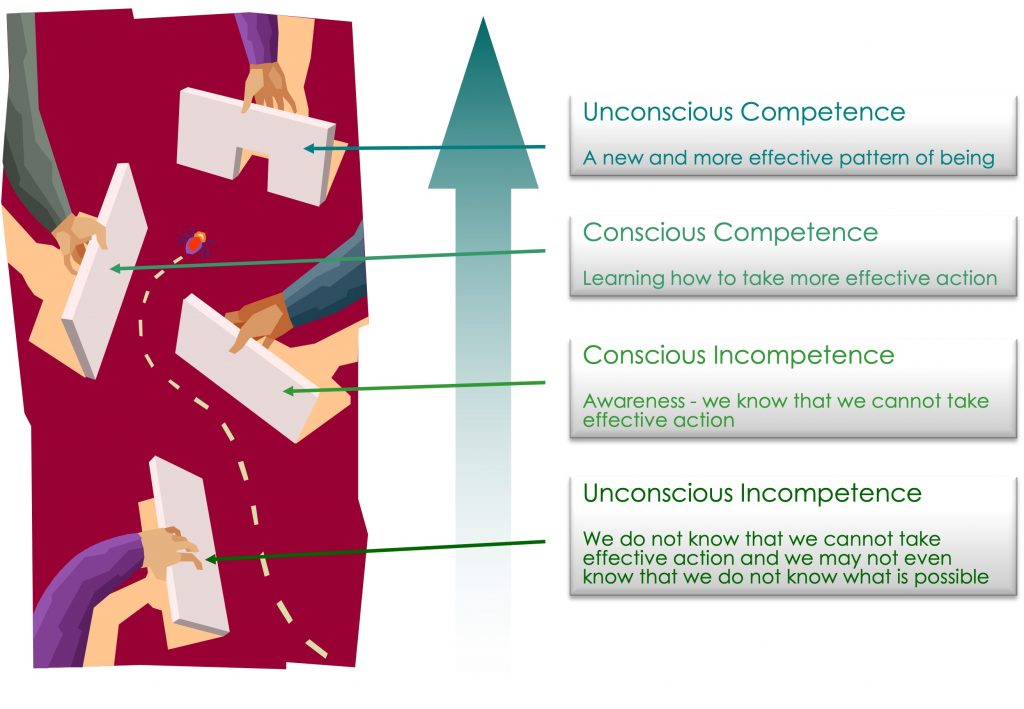
Adult development involves sustainable change. Any approach to a designed sustainable change has to begin with the understanding we are habitual beings. Any sustainable change process is one of forming new habits.
It is easy to think of the change process as a series of steps yet it can be better conceived as a stuttering proce ss where we can often fall back into old patterns and need to recommit to our effort in order to build a new habit.
The process generally begins with a breakdown challenging our sense of self or our worldview. This new found awareness presents the possibility of change but does not ensure we will commit to change. If we are to initiate change then we need to create a ‘learning space’. Generally this involves addressing four questions:
1. Do we see that there is something to learn here?
Unless we see value in learning to do something new or different, we will simply continue to do what we have always done.
2. Are we willing to learn?
Although we may see some value in learning something new, we may not wish to make the effort to learn it.
3. Am we capable of learning this?
Even if we see the need and are willing to learn, we may still doubt our ability to learn something new. Even with an initial assessment that we are capable, we may change our view over time and the learning space will collapse.
4. Is this an effective way to learn?
We need to believe the way we are expecting to learn this is going to be suit us. As with our capability, this may change over time as the learning experience unfolds and lead us to disengage from the learning space.
As we step into the learning space, we will initially seek ongoing awareness to choose our preferred new actions. Remember, one of the foundational ideas of this work is control = awareness + choice. In the early stages of a change process, we can be challenged by a lack of awareness leading us to fall back into our old habit.
It is important to appreciate that relapse is a normal part of developing new habits and does NOT represent failure. Our predictive brain fosters our habitual nature and the process of creating new habits is a process of neural change such that we make a pattern of new predictions as we anticipate certain situations.
Rather than failure, relapse offers us the chance to recommit to our desired actions. Every time we do so, we are more likely to end up with a new and more effective habit.
Overall, the path to developing a new pattern of being can be found in the four steps seen in the diagram on the right.
- Unconscious Incompetence
We do not know that we cannot take effective action and we may not even know that we do not know what is possible.
At this stage, we have no awareness our incompetence in a domain of action and may not even be aware of the domain of action itself. - Conscious Incompetence
We become aware of our incompetence in a certain domain of action.
Such a breakdown offers the possibility of learning as we go through a process to decide whether to step into a learning space. - Conscious Competence
We have entered the learning space and in the process of developing a new set of actions. This is the stage, where we may fall into relapse and need to recommit to our learning goal. - Unconscious Competence
A new habit is formed.
